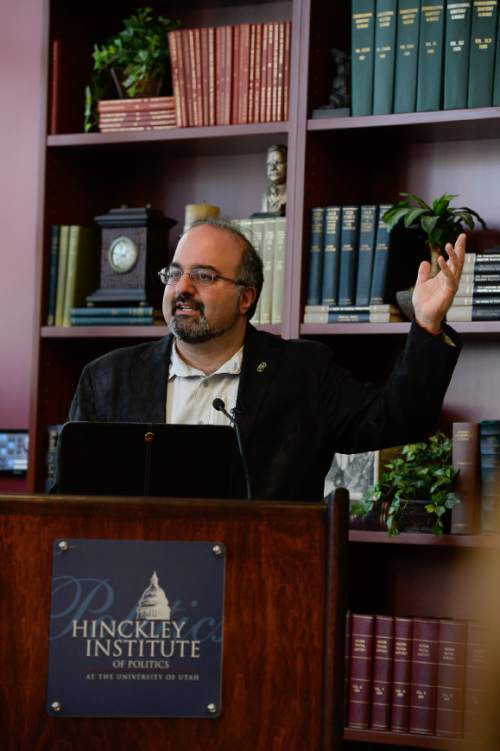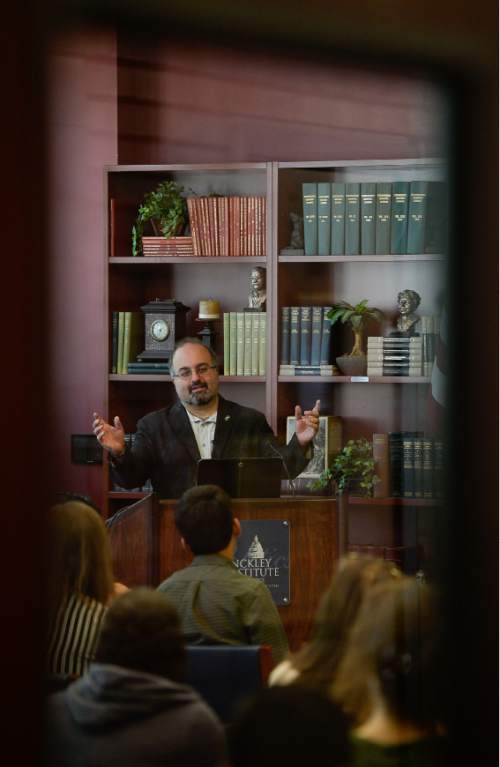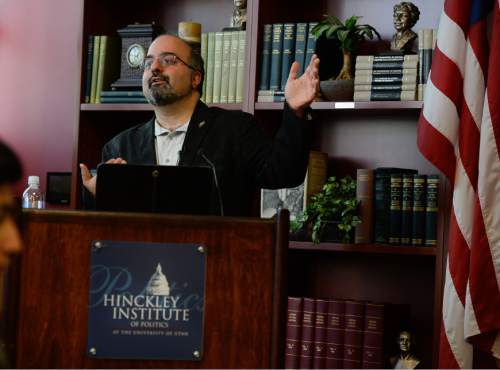This is an archived article that was published on sltrib.com in 2016, and information in the article may be outdated. It is provided only for personal research purposes and may not be reprinted.
A visiting professor told a group of University of Utah students Wednesday, "America has a bigotry problem."
Omid Safi, director of the Islamic Studies Center at Duke University, criticized American foreign policy and leaders from both major political parties for creating an environment in which ISIS flourished. He pointed to statements by Donald Trump and Sen. Ted Cruz made while campaigning for the Republican nomination that help fuel "Islamophobia." Trump has called for a ban on Muslim immigrants. Cruz has suggested putting stronger police patrols in areas with large Muslims populations. While most of the media focus has been on Trump, both plans are equally dangerous for American Muslims, he said.
"Every time they make one of these statements, their donations go up," Safi, editor of Progressive Muslims on Justice, Gender and Pluralism, said during a forum at the U's Hinckley Institute of Politics. "The scariest thing about these comments is the fact that people are giving them donations and applauding these statements."
During the Utah presidential caucus, Republican voters in the state rejected Trump by a wide margin.
Jeremy Pope, the co-director of the Center for Elections and Democracy at Brigham Young University, said rhetoric aimed at Islam was one of many factors that caused the state to vote against Trump. There is no doubt, he added, that anti-Muslim rhetoric appeals to some Republican voters throughout the country.
State Senate Majority Leader Ralph Okerlund, R-Monroe, one of two senators who endorsed Trump, said he still supports the businessman despite his polarizing rhetoric.
"You don't have to agree with everything a candidate says to support him," he said.
Congressman Jason Chaffetz, R-Utah, has recently been trying to reach out to Muslims in the community. He says he's been building great relationships and opposes the anti-Muslim ideas advocated by Trump and Cruz. Chaffetz said there should not be a religious test for immigrating into the country, adding that terrorism is a real threat and the United States needs to take steps to end it, but shouldn't discriminate based on religion.
"The Muslims I've talked to are part of the solution, not part of the problem," he said.
Chaffetz says he's endorsed no candidate since Florida Sen. Marco Rubio dropped out of the race, but previously told The Tribune he would support whoever the Republican nominee is in the general election.
Safi said that anti-Muslim sentiment is on the rise in America, and is even higher now than it was the day after the Sept. 11, 2001, attacks.
Safi argued the problem is deeply rooted in racism that has always been a part of American history. He called for people to come together and work toward ending bigotry. He said only active participation in the process and people speaking out about their suffering will change the situation.







